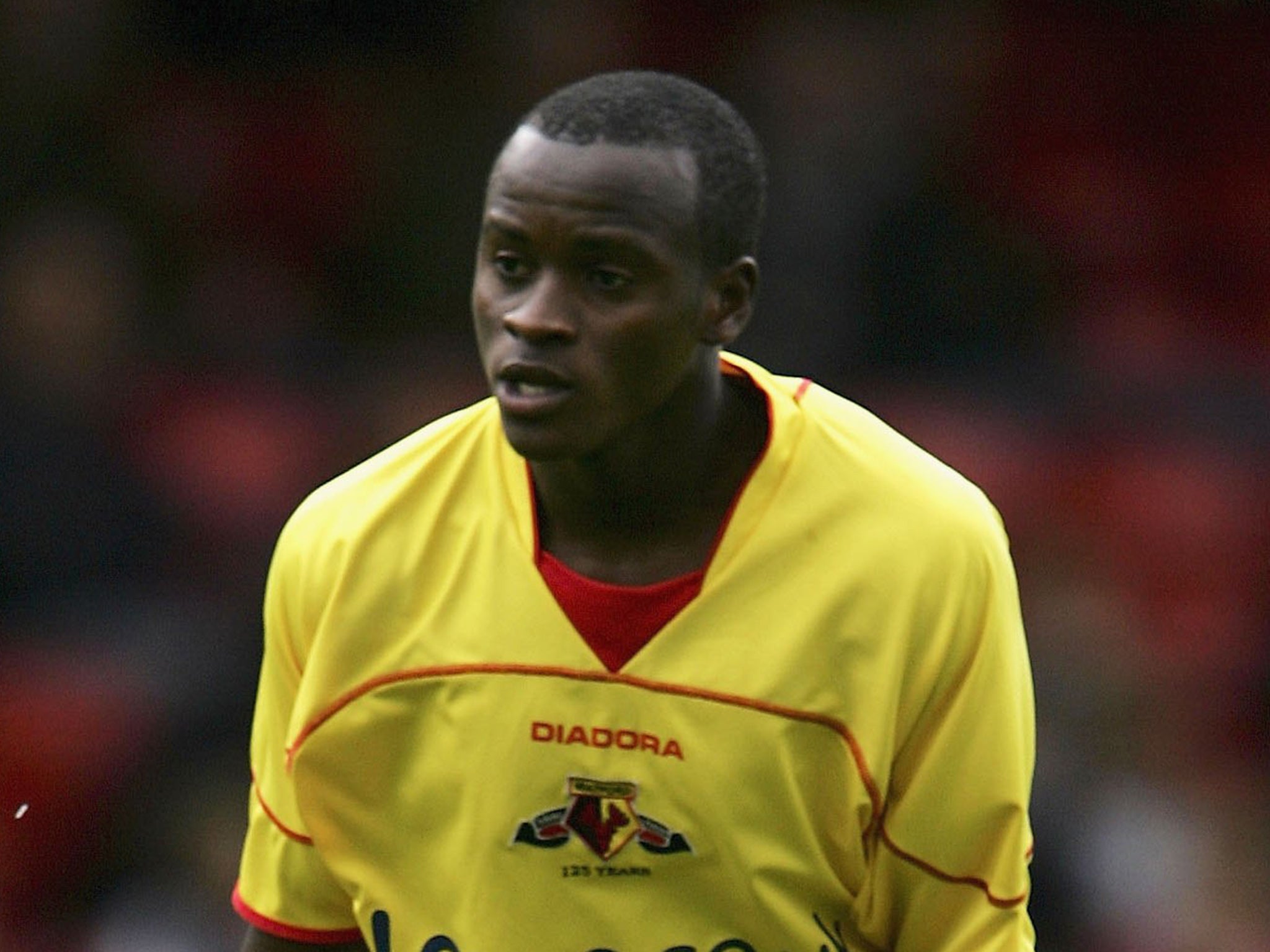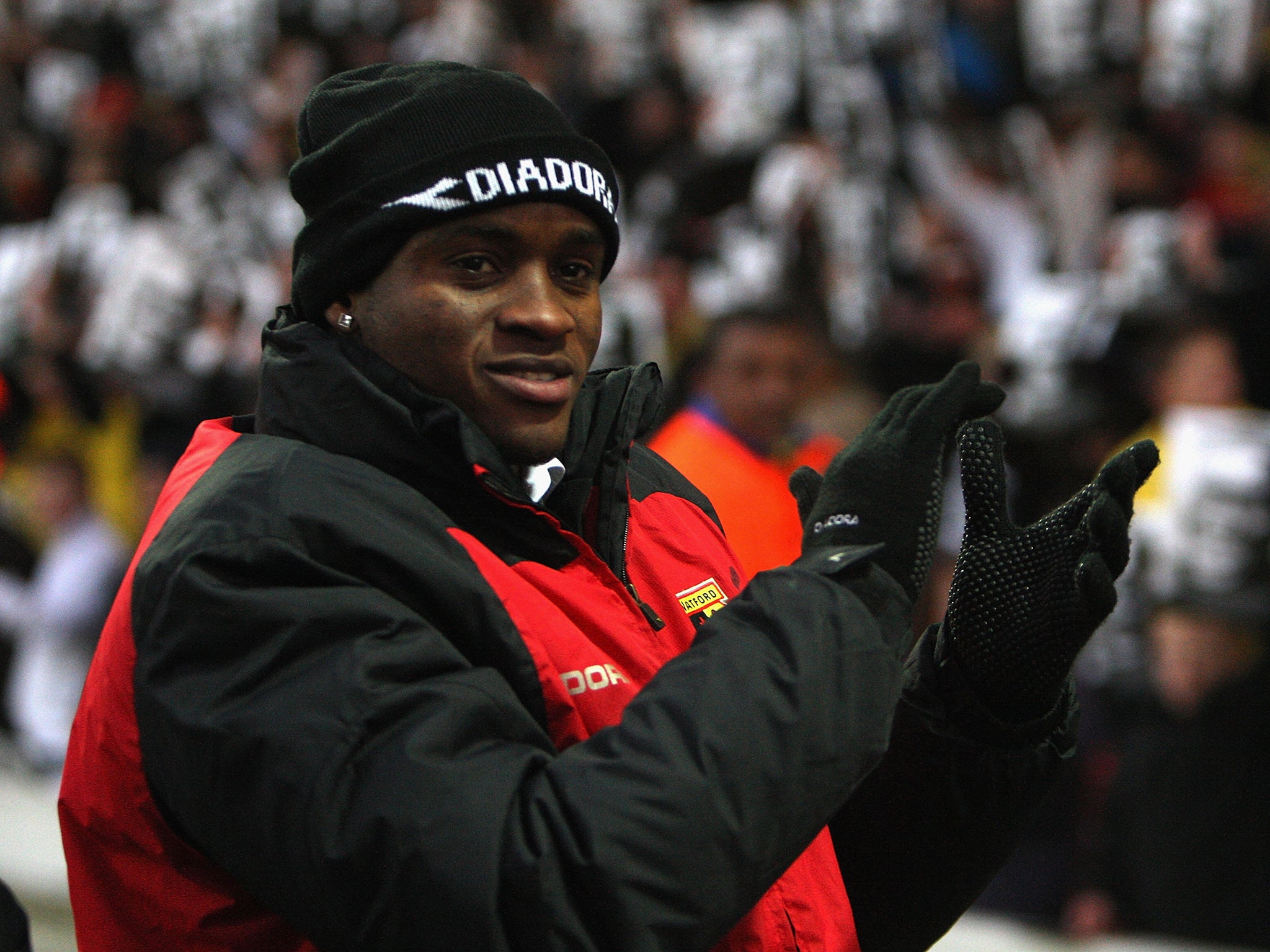Al Bangura: Former Watford Premier League star was 'trafficked for sex' as a child
'All of a sudden I saw two or three guys come around me, trying to rape me and make me do stuff'

Your support helps us to tell the story
From reproductive rights to climate change to Big Tech, The Independent is on the ground when the story is developing. Whether it's investigating the financials of Elon Musk's pro-Trump PAC or producing our latest documentary, 'The A Word', which shines a light on the American women fighting for reproductive rights, we know how important it is to parse out the facts from the messaging.
At such a critical moment in US history, we need reporters on the ground. Your donation allows us to keep sending journalists to speak to both sides of the story.
The Independent is trusted by Americans across the entire political spectrum. And unlike many other quality news outlets, we choose not to lock Americans out of our reporting and analysis with paywalls. We believe quality journalism should be available to everyone, paid for by those who can afford it.
Your support makes all the difference.A former Premier League footballer has revealed he was trafficked for sex after arriving in the UK as a child.
Al Bangura, speaking to the BBC’s Today programme, is now working with the Premier League to raise awareness around the growing risks facing young African players desperate to play in Europe.
The 27-year-old left his home in Sierra Leone at the age of 14 and travelled to neighbouring Guinea, where he met a French man who promised to help him fulfil his dream of playing football professionally.
"All of a sudden I saw two or three guys come around me, trying to rape me and make me do stuff,"
The pair travelled to France and then on to the UK, where Bangura suddenly found himself abandoned and left alone in a unfamiliar building.
"All of a sudden I saw two or three guys come around me, trying to rape me and make me do stuff," he told the BBC.
"Because I was young and I was small, I just started screaming. They probably thought I knew what I was there for - obviously I know what I came over here for, I was here to play football.
"I was just crying and proper screaming and I tried to make my way out - I was cold, I was crying, I was shaking, I didn't know what to do, I was all over the place.
"I made my way outside. I didn't know where to start, I thought it was the end of my life."

Non-governmental organisation Foot Solidaire estimates that 15,000 young footballers leave West African countries each year, many tempted to leave home by the false promises of dishonest agents.
Following the incident, Bangura was directed to the Home Office, who granted him two-year asylum.
"It was so emotional, because after a few months I'd kind of forgotten about what I'd been through, it had been sad but I ended up coming to a good thing,” Bangura said.
"I started meeting people, started playing football and I got the opportunity to join Watford when I was 16 and things just started building up for me."
"It's quite emotional to talk about it now, I'm happy I've got over it, but it's sad for me."
The National Crime Agency’s most recent figures show 2,340 potential victims of trafficking came to the UK in 2014, 29 per cent of which were minors.
"I think there's loads of vulnerable kids in Africa who want to achieve what I've achieved in my life,” said Bangura, who is now a free agent following his release from Coventry City last May.
"There's loads of kids who might not even tell their parents, or their parents might use their last money to make sure they come over here to play football and they end up doing something else.
"It's important for me, having been through what I've been through in my life, for me to say I've been through that, I've survived, but what about the young kids coming up, will they survive, are they going to be able to cope with that, so we really need to find a way to stop all of that."
Subscribe to Independent Premium to bookmark this article
Want to bookmark your favourite articles and stories to read or reference later? Start your Independent Premium subscription today.
Join our commenting forum
Join thought-provoking conversations, follow other Independent readers and see their replies
Comments